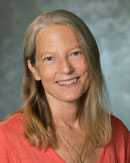Many of us spend our life listening to music, whether aware or unaware. Music surrounds us, fills the airwaves and influences us in so many ways. What is the definition of music? After all, what is “music” to one's ears may not be music to another's. Where does music come from? Why does music sound the way it does? How is the music of today linked to the past? Why should pop musicians be grateful to Bach?
This class provides an overall understanding of music, an overall appreciation for its past, present and potential future. Music has always had an impact on its listeners and has been used to promote the ideals of different civilizations. Like architecture, literature and art, music has evolved over the centuries…a living mirror and history of man's evolution and philosophy which has the power to reveal to our “modern” ears the sounds of the past: mysticism, reverence, love, passion, joy, sorrow and celebration.
Come and share this common musical thread and discover how much we have in common with those of long ago. It is in understanding this past that we can put into perspective our musical present.
Frequently Asked Questions (FAQs)
- Q: This is a zero-cost course. Do I need to buy anything from the NRCC Bookstore?
A: Not at all! Just be sure to have something to write with and some paper!
- Q: What are the advantages of taking this zero-cost class?
A: This course is designed to engage each student in the learning process. This is an “active-learning” course with each student taking responsibility for their grade through numerous opportunities for enrichment.
- Q: What do other students think about this class after taking it?
A: Student evaluations frequently extol “the freedom and expression of it,” “it’s always exciting,” “love the playlists,” “learning about different cultures,” “love learning about the history of music,” “love the class setup,” “professor’s energy,” “love how passionate and knowledgeable Dr. Billaud is about the subject,”
- Q: Can MUS 122 Music Appreciation apply to my degree?
A: Yes. If you need humanities credits, MUS 122 fulfills 3 credits.
- Q: Are these credits transferable to another institution?
A: Absolutely!
- Q: Why should I learn to “appreciate” music? I already do!
A: Music Appreciation acquaints the students with various aspects of music that the average listener may be unaware of. It will look at the evolution of Western Music, from the Middle Ages to present day. Not only will it cover why our music today sounds the way it does, but it will also explore the power of music in one's everyday life.
- Q: What other benefits are there to taking this course?
A:Many students are surprised by how this class affects their personal or family life. Often spouses have found something new to share, a reason to go out without the children, while others open a whole new world of music to their children, making bedtime, study time and car time a whole new experience!
- Q: What are the grades based on?
A: There will be three exams (300 pts.), individual student-generated playlists using Alexander Street (180 pts.), and discussion forums (50 pts.) that will be prepared outside of class. Listening journals (320 pts.) will be done in class and submitted online using Canvas. In-class assignments (given during class to be completed by the next class period) and e-mail assignments (sent through email) will allow students to explore music beyond what is covered in class (150 pts.)
- Q: How do I pronounce the instructor's name “Billaud”?
A: Very easy! Say the letter “B” and then “yo”. Put them together and now you are
speaking French!
